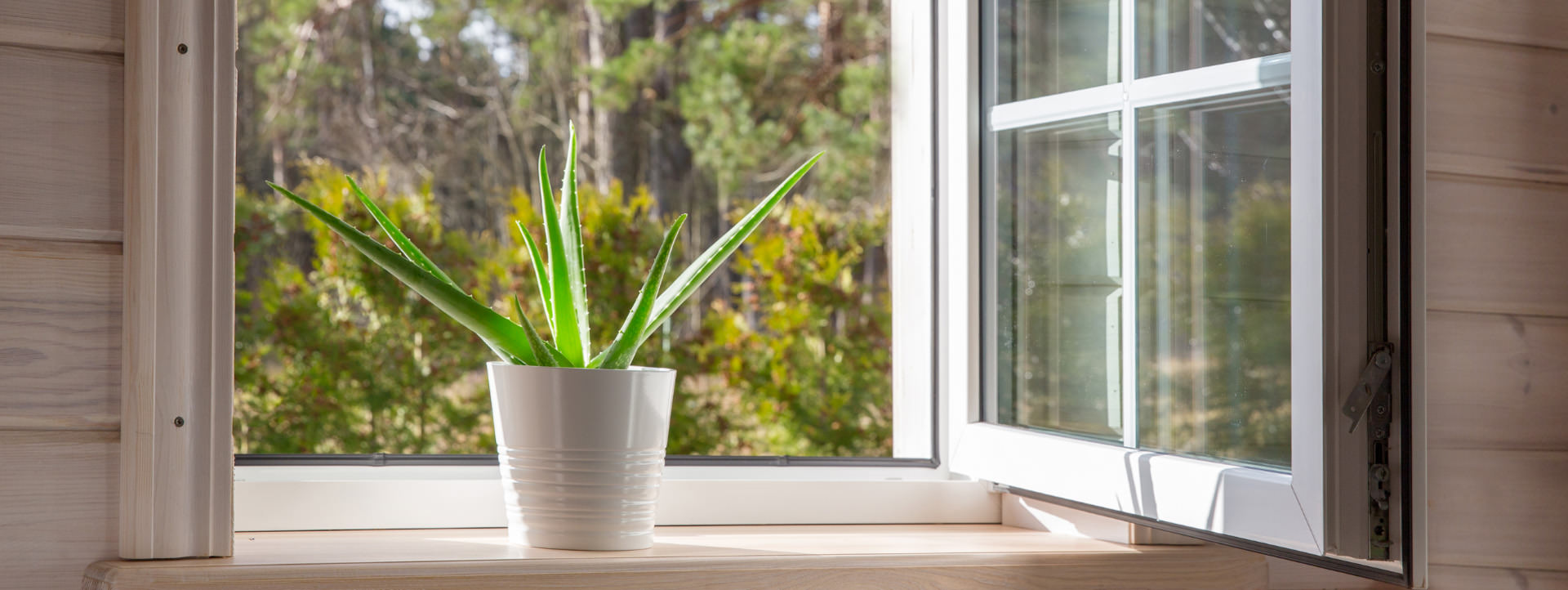
Timber - PVC - Aluminium - Windows, Doors & Conservatories in Dorset
Softwood or hardwood windows and doors?
Softwood or hardwood windows and doors?
Timber can generally be split into two types – Hardwood or Softwood
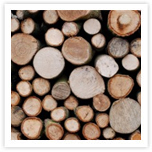 The term hardwood and softwood can be a little misleading as some hardwoods are soft and some softwoods hard. Balsa wood being a deciduous angiosperm, balsa is classified as a hardwood despite the wood itself being very soft! The important thing to remember is that both types of wood have different properties, suited to different needs in a home. The difference between hardwoods and softwoods lies in their cellular structure. Hardwoods contain four different types of cell which gives them incredible strength, durability and beautiful grains. They can be quite expensive, however. Softwoods only contain two different types of cell but are much easier to work, are more sustainable and have better thermal retention properties. They can also be much more cost-effective.
The term hardwood and softwood can be a little misleading as some hardwoods are soft and some softwoods hard. Balsa wood being a deciduous angiosperm, balsa is classified as a hardwood despite the wood itself being very soft! The important thing to remember is that both types of wood have different properties, suited to different needs in a home. The difference between hardwoods and softwoods lies in their cellular structure. Hardwoods contain four different types of cell which gives them incredible strength, durability and beautiful grains. They can be quite expensive, however. Softwoods only contain two different types of cell but are much easier to work, are more sustainable and have better thermal retention properties. They can also be much more cost-effective.
To go further into the subject the distinction between hardwood and softwood actually has to do with how the tree reproduces. All trees reproduce by producing seeds, but the seed structure varies. Hardwood trees are angiosperms, plants that produce seeds with a covering. This might be a fruit, such as an apple, or a hard shell, such as an acorn or walnut.
Softwoods, on the other hand, are gymnosperms. Gymnosperms are seed-bearing vascular plants, such as yews and conifers, in which the seeds are not enclosed in an ovary. The word “gymnosperm” comes from the Greek word gymnospermos, meaning ‘naked’ seeds. Fast growing trees like Pine trees grow seeds in hard cones, fall into this category. In conifers like pines, these seeds are released into the wind once they mature. This spreads the plant seed over a wider area.
In most cases, angiosperm trees lose their leaves during colder winter months while gymnosperm trees keep their leaves all year round. So, it’s also accurate to say evergreens are softwoods and deciduous trees are hardwoods.
As we can see the hardwood/softwood terminology does make some sense. Evergreens do tend to be less dense than deciduous trees and therefore easier to cut, while most hardwoods are dense so harder to cut. So as the classification of balsa wood demonstrates, there is no minimum weight requirement to become a hardwood.
These are the different types of woods available from our manufacturer.
Sapele – Type Hardwood
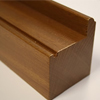 KJM’s most popular option, sapele is a very strong, stable and durable tropical hardwood that is very well suited to joinery manufacture. The timber is sourced from West Africa and the Cameroon and is classified as moderately durable with a Class 3 to 4 durability rating. It is very attractive, thanks to its dark reddish brown appearance, and is well suited to a transparent coating.
KJM’s most popular option, sapele is a very strong, stable and durable tropical hardwood that is very well suited to joinery manufacture. The timber is sourced from West Africa and the Cameroon and is classified as moderately durable with a Class 3 to 4 durability rating. It is very attractive, thanks to its dark reddish brown appearance, and is well suited to a transparent coating.
Benefits
- No requirement for preservation treatment as the species’ lack of permeability makes it resistant to treatment
- The density/hardness is 640 kg/m2 (By contrast European Redwood is 510 kg/m2 and European Oak is 720 kg/m2.)
- Over 50% of our Sapele purchases from our manufacturer are Verified Progress
Suited to: Heritage properties, properties in conservation areas
Oak Type Hardwood
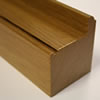 The traditional material of choice for timber windows, oak has been used hundreds of years in window construction. A hardwood with incredible durability and strength, oak is suited to the heaviest of uses and can last a lifetime if properly maintained. Oak timber windows also have incredible aesthetics, thanks to the subtle aesthetics of each tree’s grain. The perfect, traditional choice.
The traditional material of choice for timber windows, oak has been used hundreds of years in window construction. A hardwood with incredible durability and strength, oak is suited to the heaviest of uses and can last a lifetime if properly maintained. Oak timber windows also have incredible aesthetics, thanks to the subtle aesthetics of each tree’s grain. The perfect, traditional choice.
Benefits
- Beautiful woodgrain effects for a heritage aesthetic
- Incredibly strong and durable
- Long lasting
- Authentic, traditional choice for windows
Suited to: Heritage properties, properties in conservation areas, traditional aesthetic homes
Redwood Type Softwood
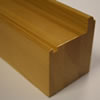 Redwood timber has a reduced moisture uptake which helps to improve weatherproofing and prolong the window’s working lifespan. This makes it suitable for use in a range of settings.
Redwood timber has a reduced moisture uptake which helps to improve weatherproofing and prolong the window’s working lifespan. This makes it suitable for use in a range of settings.
Redwood timber windows are perfect if you want to add a touch of traditional charm to a property, without compromising on modern aesthetics.
Benefits
- Excellent dimension stability and durability
- Reduced moisture uptake prolonging lifespan
- Subtle, modern aesthetic
Suited to: Modern-look properties, new builds
Accoya Type Softwood
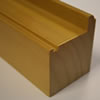 Accoya wood is a specially treated softwood that has incredible properties. The non-toxic acetylation treatment process through which Accoya is treated, changes the cellular structure of the timber, enhancing its performance. Accoya wood not only has an estimated lifespan of 60 years, it also has exceptional thermal performance, aesthetics and weatherproofing properties. It can even repel insects. Sourced sustainably, an Accoya wood window is suited to both traditional and modern properties. Further information and a video presentation on this timber can be found on our Accoya page.
Accoya wood is a specially treated softwood that has incredible properties. The non-toxic acetylation treatment process through which Accoya is treated, changes the cellular structure of the timber, enhancing its performance. Accoya wood not only has an estimated lifespan of 60 years, it also has exceptional thermal performance, aesthetics and weatherproofing properties. It can even repel insects. Sourced sustainably, an Accoya wood window is suited to both traditional and modern properties. Further information and a video presentation on this timber can be found on our Accoya page.
Benefits
- Incredibly durable, with a working life span of 60 years and up.
- Accoya is a 40% better insulator than hardwoods.
- Factory applied coatings will last much longer on Accoya
- Products made from Accoya are much less likely to distort
Download our free Accoya Window Door Conservatory brochure
For more information visit kjmgroup.co.uk email sales@kjmgroup.co.uk or call 01264 359355.













